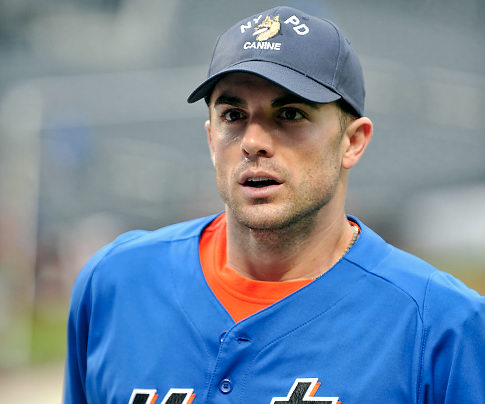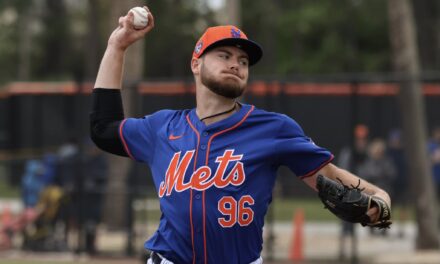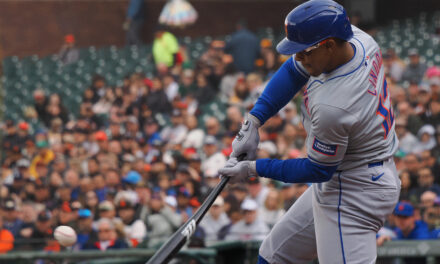 I like David Wright and want the Mets to sign him to an extension.
I like David Wright and want the Mets to sign him to an extension.
However, the question is: For how long?
The other day I wrote the Mets should get going and sign him and R.A. Dickey. What I should have said is they should put their best offer on the table, and if nothing else, be creative. My thoughts were the longer this drags on – especially after saying they wanted to get something done quickly – the more their price rises, as does the chances of losing them.
Contracts over five years are in vogue for superstars, Derek Jeter, Albert Pujols, Prince Fielder and Alex Rodriguez all received them based on past and future performance. However, most of these teams have, or will, regret the decision. The Yankees certainly do with Rodriguez. Pujols likely gave his best to the Cardinals.These deals are precarious, as evidenced by the contract Johan Santana signed with the Mets. Then again, the Mets regretted four with Jason Bay. Injuries are always a risk, but seldom do players produce as they did in the seasons leading up to the payday.
The Mets didn’t want to give a long-term deal to Jose Reyes because they feared him breaking down physically. The Mets had plenty of signs about Reyes’ durability, and are now getting the same indicators with Wright.
From 2005-2008, when the Mets played in Shea Stadium – and for the most part he was surrounded in the line-up with sluggers Carlos Beltran and Carlos Delgado – Wright was an offensive force, never hitting below .300 and never having an on-base percentage less than .388. He never hit fewer than 26 homers, drive in less than 100 runs, or have a .912 OPS.
Those numbers would have been worthy of a $100-million plus deal.
Wright was a blossoming All-Star and the hope was him having a Chipper Jones-like career and eventually go into the Hall of Fame as a single-team player. Jones did it with the Braves and is waiting on the Hall, as is Jeter with the Yankees. Pujols should be a Hall of Famer, but not as a single-team player. With Rodriguez, PED’s might keep him out.
I’m not so sure about Wright, on either count, these days.
The Mets signed Wright to a six year deal in 2006 (with a 2013 option they picked up ) and for the most part received their money’s worth. The speculated numbers are now over $100 million for at least six years (more than double his current contract).
However, his production over the past four years isn’t worthy of such a deal. If he gets one, it will be for past performance and marketability in addition to what the Mets hope he’ll give them during his prime. Wright isn’t just another player to the Mets in that he brings a lot to the table off the field, which also has a value.
Last year, Wright had a terrible second half and settled for .306, 21 homers, 93 RBI, a .391 on-base percentage and .883 OPS. It was a good, but not great season. It was not a season up to his standards or goals. The Mets, their fan base, and Wright himself, all expect more.
Owner Fred Wilpon let it slip Wright wasn’t a superstar, and wasn’t wrong.
But, alarmingly so, 2012 was also the best he’s done the past four seasons. Whether it be succumbing to the pressure of trying to carry the Mets; injuries (the Matt Cain beaning had to have taken something out of him); the difficulty of getting acclimated to Citi Field; or simply underperforming or perhaps hitting his career peak, Wright has not produced like a superstar.
He has not produced like a player expecting a $100-million package. Wright’s season highs the past four years are 91 runs (2012), 178 hits (2012), 29 homers and 103 RBI (2010), a .307 average (2009), a .391 on-base percentage (2012), an .883 OPS (2012, making it four straight years under .900.
As much as I like Wright, the question the Mets must answer is whether he hit his ceiling as a player. It is not a pleasant question, but it is pertinent. The Mets must decide if his trade value is at a high or if they have the ability to surround him with other parts. They must also crunch some numbers to determine whether to front load or back load the contract.
How many years should Wright get? I’m thinking five as the base with a string of option years. If they have seven as a base, they could find themselves under more financial stress down the road.














